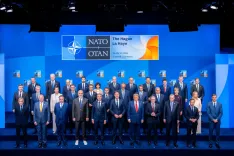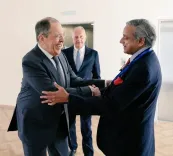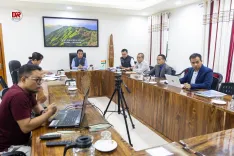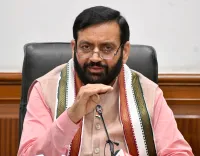Have Islamist Parties in Bangladesh United Before National Elections?
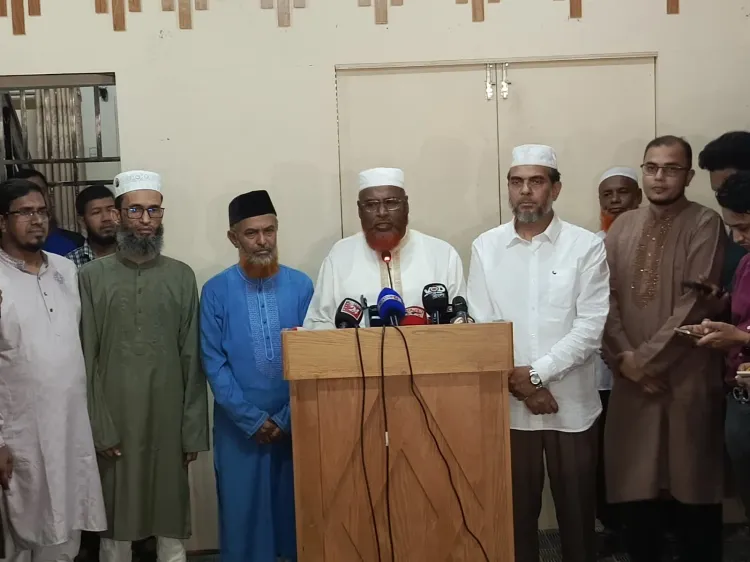
Synopsis
Key Takeaways
- Formation of a liaison committee among five Islamist parties in Bangladesh.
- Objective to streamline electoral strategy for national elections.
- Exclusion of Jamaat-e-Islami from the alliance due to disagreements.
- Recent legal victories for Jamaat-e-Islami, including reinstatement of registration.
- Concerns over rising extremism and implications for democracy.
Dhaka, June 25 (NationPress) A coalition of five radical Islamist parties in Bangladesh has come together to create a liaison committee as the national elections approach, according to local media reports from Wednesday.
This alliance includes the Qaumi Madrasa-based parties: Islami Andolan Bangladesh, Khilafat Majlis, Bangladesh Khilafat Majlis, Jamiat Ulama-e-Islam, and Nezam-e-Islam Party.
Reports indicate that the committee will have two representatives from each of the parties involved.
“We are working on a project to present a single candidate and use one ballot box for the five Islamic parties. This initiative is still in progress, and the final details are yet to be officially confirmed,” said Jamiat Secretary General Maulana Manjurul Islam Afendi, as quoted by the prominent Bangladeshi daily Dhaka Tribune.
The leaders of these five groups have been in talks for several years to establish a unified Islamic alliance.
“A liaison committee has been created, but we haven’t reached a solid decision on the electoral process. There are differing opinions on our unity, our collective direction, and whether we will join a larger alliance. We are in the midst of discussions regarding compromises among the five Islamic parties. While we have found some common ground, much deliberation remains,” he elaborated.
Some sources have suggested that the radical Jamaat-Islami Party, which opposed Bangladesh's 1971 Liberation War against Pakistan, has been excluded from this alliance due to disagreements.
Recently, the Election Commission (EC) of Bangladesh issued a gazette notification restoring the registration of Jamaat-e-Islami, allowing it to use its electoral symbol, the 'Scales' (Daripalla).
This decision followed a recent ruling by the Supreme Court of Bangladesh, which reinstated Jamaat's registration, reversing a prior High Court ruling that deemed the party's registration illegal.
The interim government led by Muhammad Yunus had previously lifted the ban on Jamaat and its student wing, Islami Chhatra Shibir, via a gazette notification.
Last month, the Supreme Court acquitted Jamaat-e-Islami's radical leader, ATM Azharul Islam, overturning a death sentence imposed by the International Crimes Tribunal (ICT) of Bangladesh. He was subsequently released after nearly 13 years in prison for war crimes.
Azharul Islam faced charges of crimes against humanity during the Liberation War of 1971, including the murder of 1256 individuals, the abduction of 17, and the rape of 13 women in the Rangpur region, as reported by local media.
Analysts believe that these radical factions previously collaborated with student leaders and Yunus to destabilize the democratically elected Awami League government under former Prime Minister Sheikh Hasina.
While expressing concerns over the rising extremist rhetoric and incidents of violence in Bangladesh, India has previously urged the interim government to uphold its responsibility to protect all minority groups.


